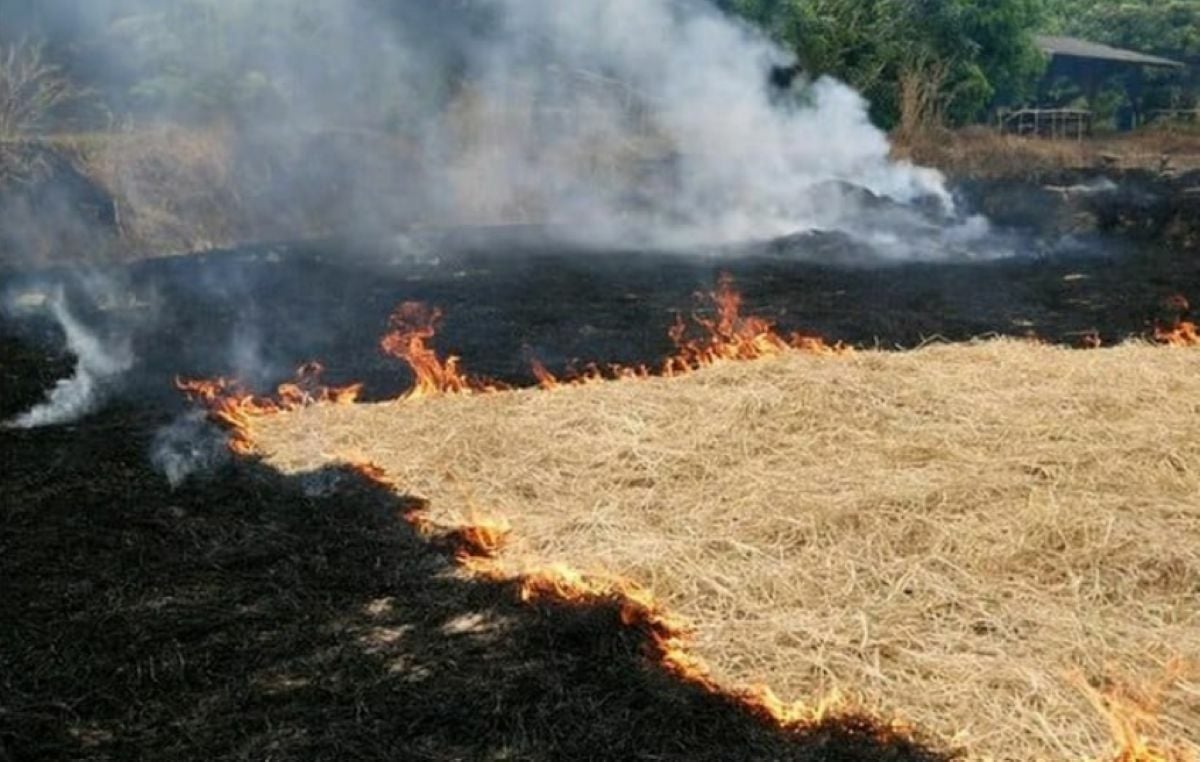Thailand pushes alternative crops to curb agricultural burning

Thailand is taking significant steps to empower farmers in addressing the persistent issue of agricultural burning, which contributes to PM2.5 dust pollution, particularly in lowland areas. By encouraging the cultivation of high-value alternative crops, the country aims to mitigate the detrimental environmental impact and enhance the sustainability of the agricultural sector.
The Ministry of Agriculture and Agricultural Cooperatives, alongside international organisations in Thailand, has established the Friends of Thai Agriculture alliance. This collaborative effort is designed to facilitate the transition towards climate-smart farming practices, which are crucial for reducing the carbon emissions linked to straw and stubble burning while simultaneously improving farmers’ livelihoods.
Prayoon Inskul, the permanent secretary, recently addressed a conference focused on reducing air pollution by preventing burning in agriculture. He emphasised the government’s commitment to boosting farmers’ capabilities through the 3R Model.
The model highlights reducing burning, replacing traditional short-lived crops with economically beneficial plants such as avocado and coffee, which enjoy strong market demand, and substituting non-irrigated lowland farming with alternative crops like maize after the rice season to decrease highland burning.
Maize burning is identified as a significant contributor to the pollution problem in northern Thailand. The practice is prevalent among farmers who burn maize stubble, exacerbating poor air quality levels. During the haze season, Chiang Mai often ranks among the cities with the worst air pollution globally.
Timo Menniken, GIZ Thailand’s country director, underscored the significance of sustainable agricultural practices. He advocated for enhanced mechanisation, innovative management of agricultural residues, and the development of new value chains for biomass.

GIZ has introduced the piloting sustainable use cases of rice straw project in Chiang Rai, which is funded by Germany’s Federal Ministry of Economic Cooperation and Development.
This initiative demonstrates how agricultural residues can be repurposed into valuable resources through composting and creating biodegradable food packaging from rice straw.
Menniken highlighted that these innovations hold the potential to curtail greenhouse gas emissions while bolstering the resilience of smallholder farmers against climate change.
Transforming agricultural residues into useful products not only supports environmental sustainability but also contributes to the economic viability of farming communities, reported Bangkok Post.
Thailand’s strategic focus on alternative crops and sustainable farming practices marks a pivotal step towards addressing the air quality challenges posed by agricultural burning.
By fostering an ecosystem of innovation and collaboration, the nation seeks to balance environmental conservation with economic growth, ensuring a healthier future for its citizens and the environment.
Frequently Asked Questions
Here are some common questions asked about this news.
Why is Thailand focusing on alternative crops to combat PM2.5 pollution?
Alternative crops reduce burning, thus lowering emissions and enhancing sustainability, offering economic benefits.
How could the ‘3R Model’ revolutionise traditional farming practices in Thailand?
By reducing, replacing, and substituting, the 3R Model limits pollution and promotes high-value crops, transforming livelihoods.
What if Thailand’s approach to agricultural residue management becomes globally adopted?
Global adoption could significantly reduce emissions, improve air quality, and create economic opportunities worldwide.
How do innovative uses of rice straw contribute to sustainability and economic growth?
Repurposing rice straw into products like compost and packaging reduces waste and provides new income streams.
Why is mechanisation deemed crucial for sustainable agriculture in Thailand?
Mechanisation improves efficiency, reduces manual labour, and supports innovative residue management, fostering sustainable practices.
Latest Thailand News
Follow The Thaiger on Google News:


























